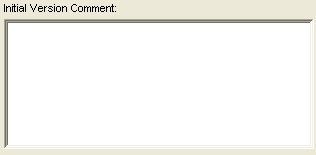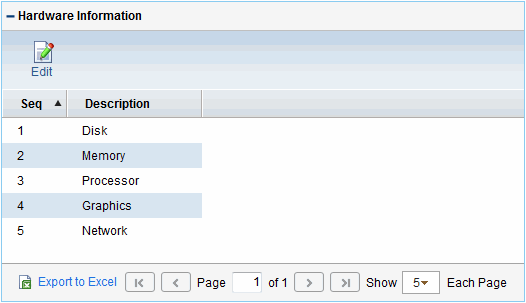Use validations
This topic provides an overview of validations.
Overview
Validations determine the acceptable input values for user-defined fields, such as object type or request type fields. Validations also determine the possible results that a workflow step can return. Validations are used for the following functions:
-
Field component type. Users can create fields for several entities, including object types, request types, request header types, and user data. Validations determine the field component type (for example, text field or list) and define possible field values.
-
Workflow step results. Validations determine the possible results of exiting a workflow step. For example, the validation WF - Standard Execution Results contains the possible execution step results of Succeeded or Failed.
Every PPM installation includes predefined system validations, which you can use as you configure your system. If no system validation meets your requirements, you can use the Validation Workbench to create your own validation. For details, see Configure validations.
Caution: PPM does not support deprecated validations. The user-defined fields and workflow steps that are created by using these validations may not work.
Validations and special characters
You cannot type the question mark character (?) in the validation Name field. The PPM Workbench prevents users from typing this character in the field.
Validation component types
You can only use certain component types in a workflow step source validation. Table 5-1. Component types summarizes the field component types available.
|
Component Type |
Use In Workflow? |
Description, Example, and Configuration instructions |
|---|---|---|
|
Text field |
Yes |
Text entry fields displayed on a single line. You can configure text fields to display the data in a specific format. For example, you can configure a text field to accept and format a hyphenated nine-digit social security number or a ten-digit phone number.
|
|
Drop-down list |
Yes |
Field that displays a list of values.
PPM enhances the functionality of the drop-down list, enabling search capability on pages such as the request details page, project details page, and program details page. To use this improved feature, turn on the Use New Drop-Down and Auto-Complete Lists feature toggle. |
|
Radio buttons (Yes/No) |
No |
Field that accepts binary input.
No configuration is needed for this component type. |
|
Auto-complete list |
Yes |
Field that lets you open a dialog box that lists choices.
Configuring static list validations. Configure dynamic list validations. Note:
|
|
Text area |
No |
Text entry field that can include multiple lines.
|
|
Date field |
No |
Field that lets you specify date format.
|
|
Web address (URL) |
No |
Text entry field for specifying a URL. Clicking U opens a browser window to the specified Web address.
|
|
File chooser |
No |
Used only in object types. Requires that two fields be defined with the tokens
|
|
Directory chooser |
No |
Used only in object types. Requires a parameter field defined with the token
|
|
Attachment |
No |
Field used to locate and attach files.
|
|
Password field |
No |
Field used to capture passwords.
There is nothing to configure for this component type. |
|
Table component |
No |
Used to specify multiple records in a single component. The table component can be configured to include multiple columns of varied data types. This component supports rules for populating elements within the table and provides functionality for capturing column totals. You can only add fields of this component type to the Request Details page. Limitation: The maximum entry number allowed for fields of this component type is 500.
|
|
Staffing profile, financial data table, link |
No |
Field that you can add to the request type to enable access to view, edit or create staffing profiles or financial data tables associated with a request, project, or work plan.
|
| Check Box | No |
Field that lets you select multiple values. You can only add fields of this component type to the Request Details page. Note: This option is available only when the feature toggle Enable Checkbox List Validation is turned on.
|
| Tag | No |
Field that lets you search and add existing tags or create new ones. You can add fields of this component type to request types and request header types only.
No configuration is needed for this component type. |
Special Note for Link and Web Address (URL) Component Types
When you use <!--HTML--> for Link and Web Address (URL) component types, make sure not to use <a></a> tags as they are not allowed. Link and Web Address (URL) components are <a></a> tags in Web UI, you cannot embed <a></a> tags within <a></a> tags.
<!--HTML--> is designed for advanced users and you should use tags that affects font and color only. For example, the script below is valid:
<!--HTML--><font color='red'>PPM</font>
<!--HTML--><b>PPM</b>
The script below is not allowed for Link and URL:
<!--HTML--><a href='http://my-company.com'>my-company</a>
Note that link description is also not allowed.

























